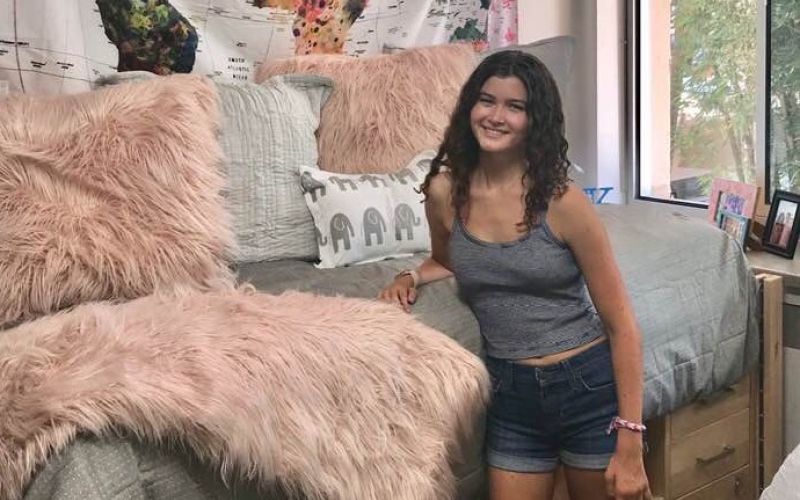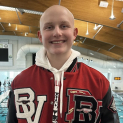
By: Kennedy Snyder
For my four long years of high school, I woke up at 5:30 every morning to go to swim practice and then stayed up late nearly every night to finish my chemistry homework. I desperately wanted to get into my dream school, the University of Southern California (USC), nearly 3,000 miles away from my home in Connecticut. And then, I got my acceptance letter — reaching my long-awaited goal. Yet, my struggles were far from over.
I walked into my dorm room for the first time last August and, to the outside world, I looked like any other eager, nervous 18-year-old, ready to start her freshman year. But, by walking into my dorm room and away from childhood home, I confronted much more than the trials of early adulthood that any freshman in college would face.
Sixteen years ago, when I did not even know what USC was, or any university for that matter, I was diagnosed with cancer — tumors called astrocytoma were in my spine. I was just 2 years old at diagnosis, so my treatment and recovery plan was naturally placed in the hands of my parents. From that point forward, I lived with and relied on two adults who knew more about my condition than I did.
However, forcing myself into adulthood by going off to a college across the country pushed me into educating myself about my own condition and evaluating what I had gone through. After all, the “pediatric” part of pediatric cancer was now over. I had to learn to monitor myself and my condition as an adult.
This self-reflection drew me even closer to supporting childhood cancer awareness and research. My family had long been involved with Alex's Lemonade Stand Foundation (ALSF) and their mission of supporting research for cures and safer treatments for children with cancer. My family raised over $600,000 for the Foundation (you can read more about my Dad here).
I deeply wanted to support and become more involved with this non-profit as an adult. While cancer will always be part of my life, I also wanted to be part of the solutions that would give scientists and doctors the funding to discover more reliable and efficient treatment plans, and to eventually find the cure to such an awful disease. Doing so would give children like me the chance to reach adulthood and the confidence to set out in the world to start their life as their own person, free from the complications of their illness.
Now that my intimidating freshman year is over, I’m planning to start a Lemon Club to benefit ALSF at USC and also get involved with L.A. Loves Alex’s Lemonade, an event I look forward to every year!
Approximately 15,000 children are diagnosed with childhood cancer in the U.S. each year. And despite this, less than 4% of the federal government’s total funding for cancer research is dedicated to childhood cancers. This is why supporting research is so critical: children are waiting for cures and safer treatments. You can get involved this September during Childhood Cancer Awareness Month by supporting The Million Mile.
Kennedy Snyder is about to begin her sophomore year at the University of Southern California, where she is majoring in Communications.

